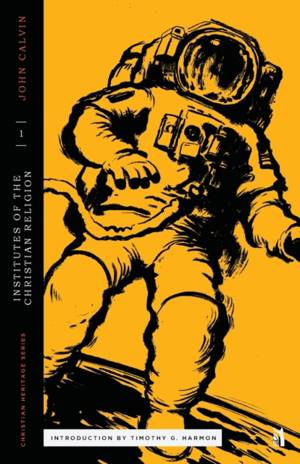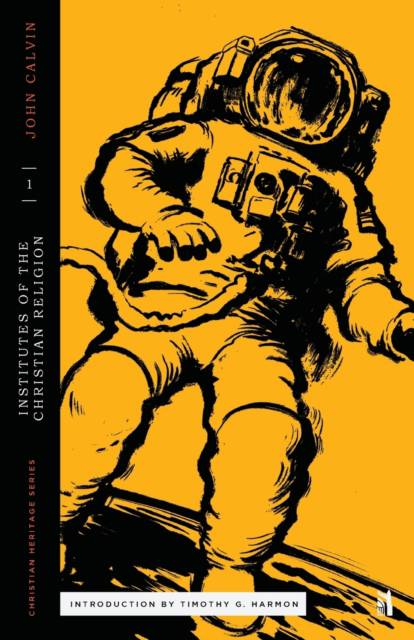
- Retrait gratuit dans votre magasin Club
- 7.000.000 titres dans notre catalogue
- Payer en toute sécurité
- Toujours un magasin près de chez vous
- Retrait gratuit dans votre magasin Club
- 7.000.0000 titres dans notre catalogue
- Payer en toute sécurité
- Toujours un magasin près de chez vous
Description
"What accords better and more aptly with faith than to acknowledge ourselves divested of all virtue that we may be clothed by God, devoid of all goodness that we may be filled by Him, the slaves of sin that He may give us freedom, blind that He may enlighten, lame that He may cure, and feeble that He may sustain us; to strip ourselves of all ground of glorying that He alone may shine forth glorious, and we be glorified in him?" From Book I of the Institutes
Institutes of the Christian Religion is one of the most important and straightforward works of theology ever written, yet so few people actually read it. The Christian Heritage Series presents all four books of the Institutes in complete, unabridged, easy-to-read volumes. John Calvin certainly writes good theology, but he also writes with beauty and clarity-and both these aspects are captured in Beveridge's translation. Calvin is concerned that readers not be puffed up with new knowledge, rather he wants us to be drawn to the majesty and holiness of God in order to know our sin and our need for grace. Read this classic to grow closer to God.
Book 1 of the Institutes is about the knowledge of God the creator. As Calvin observes, the knowledge of God and the knowledge of man are inextricably intertwined, and if we are to know ourselves rightly, we must have a knowledge of God's holiness and majesty. However, since the human mind is an idol factory, our knowledge is so tainted and dim that we live in death and ignorance unless God's grace intervenes. Here Calvin discusses God, natural law, human sinfulness, Scripture, the Trinity, and providence.
"Of those shelved classics warranting a dusting off, Book I of Calvin's Institutes is among the most deserving. This is not because it offers much that is new; the treasures Calvin offers are not those to be unearthed only through possession of secret coordinates. As with so many literary gems, the trouble is not a lack of access but a dearth of appreciation for what lies hidden in plain sight, the contents more assumed than actually explored. The reader who takes the time to ponder the riches here will not be disappointed. He will find that this is not just a good old book, worth reading solely for its inherent literary value. More than this, it is a volume with critical import for today, as its pages soundly sketch the realm, made visible by divine revelation, that conditions our present situation." From Timothy G. Harmon's Introduction
Spécifications
Parties prenantes
- Auteur(s) :
- Editeur:
Contenu
- Nombre de pages :
- 400
- Langue:
- Anglais
- Collection :
Caractéristiques
- EAN:
- 9781952410543
- Date de parution :
- 01-11-20
- Format:
- Livre broché
- Format numérique:
- Trade paperback (VS)
- Dimensions :
- 140 mm x 216 mm
- Poids :
- 462 g

Les avis
Nous publions uniquement les avis qui respectent les conditions requises. Consultez nos conditions pour les avis.






